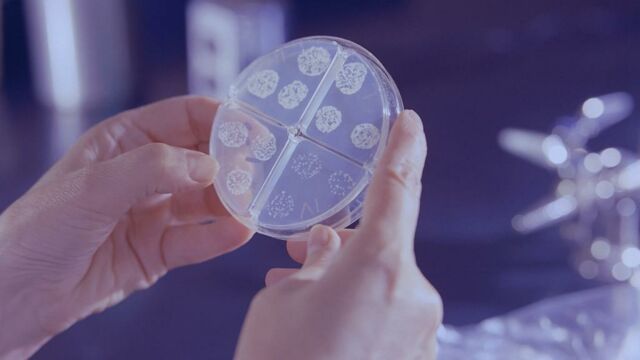Dr Laura Cleghorn, from the University of Dundee, has warned that the pandemic could lead to a rise in tuberculosis (TB) infections around the world as some patients have gone undiagnosed during the crisis.
Discover our latest podcast
People are being urged not to assume that a persistent cough and fever is Covid after figures indicate an increase in TB cases. The warning is particularly for those in groups at a higher risk of contracting the disease.
A rise in tuberculosis cases in the UK
The UK Health Security Agency (UKHSA) said the decline in TB up to 2019 seems to have reversed, with cases rising by 2.4% in England – from 4,615 in 2018 to 4,725 in 2019.
Although TB cases decreased in 2020, most likely because people stayed away from the NHS amid the pandemic, suggestions are that infections increased by over 7% in 2021.

Dr Jenny Harries, chief executive of the UKHSA, said:
TB is curable and preventable and now is the time to get our elimination efforts back on track… Tuberculosis remains a serious public health issue in the UK. Delayed diagnosis and treatment, particularly during the pandemic, will have increased the number of undetected TB cases in the country.
TB is a bacterial infection spread through inhaling tiny droplets from the coughs or sneezes of an infected person.
Although TB primarily impacts the lungs, it can also damage other parts of the body, including the abdomen, glands, bones, and nervous system.
TB can be life-threatening, but most cases can be effectively treated with antibiotics. However, some forms of TB are resistant to certain antibiotics.
Read more:
⋙ COVID: This rare side effect of the virus causes hallucinations and delusions
⋙ COVID: Having the infection could lead to an increased risk of diabetes
⋙ COVID vaccine: Experts report rare autoimmune side effect after Pfizer jab
New therapies are 'urgently required'
Dr Cleghorn said:
All the front-line drugs currently in use were identified before the 1960s and all have increasing amounts of clinical drug resistance, so novel therapies are urgently required to tackle the disease.
With the potential increase in cases due to the pandemic there is an even more pressing need for new therapeutics to address what will likely be a clear increase in TB burden and deaths once the Covid-19 pandemic is curtailed.
People at an increased risk of contracting TB include those who are in close contact with a person known to have the disease, migrate from countries with high rates of TB, have a weakened immune system, are homeless, addicted to drugs, or in prison.
According to the NHS, the BCG vaccine offers protection against TB. The NHS recommends the vaccine for babies, children, and adults under the age of 35 who are considered to be at risk of contracting TB.
The University of Dundee's Drug Discovery Unit (DDU) has received a $5million (£3.8million) grant from the Bill & Melinda Gates Foundation to reduce the duration of drug therapy. The work, which will take place over three years, will have a primary focus on TB.
The announcement was made prior to World TB Day on Thursday, which aims to increase awareness and understanding about the disease.
If you are feeling unwell, please see your doctor.















